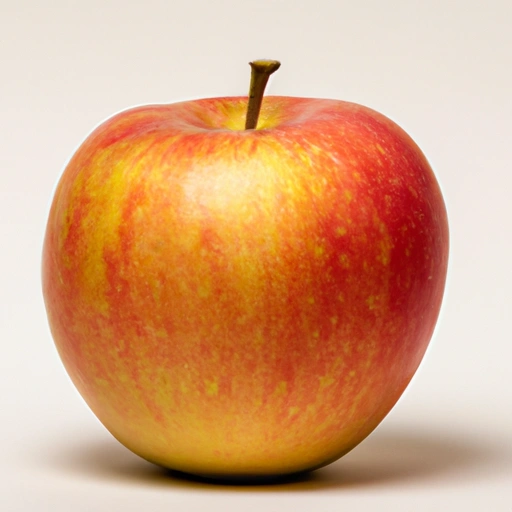Fuji Apple
Description

The Fuji apple is a hybrid apple variety that has become a favorite in kitchens around the world. Known for its dense flesh and a perfect balance of sweet and tart flavors, it lends itself well to a variety of culinary uses. Its name comes from Fujisaki, Japan where it was developed in the late 1930s, but it has since become popular across continents for its delightful taste and texture.
Common uses
Fuji apples are often enjoyed raw, as snacks, or as part of fruit salads, platters, and cheese boards. They also make excellent additions to baked goods, such as pies, muffins, and cakes, or can be cooked down into sauces and preserves.
Nutritional value
Calories
A medium-sized Fuji apple (about 182 grams or 6.4 ounces) contains approximately 95 kcal (397 kJ).
Protein
Fuji apples contain about 0.5 grams of protein per medium-sized apple.
Fat
These apples are low in fat, with a medium-sized apple having roughly 0.3 grams.
Carbohydrates
Carbohydrates in a medium Fuji apple amount to about 25 grams, which includes 19 grams of sugar and 3 grams of dietary fiber.
Vitamins
Fuji apples are a good source of Vitamin C, providing about 8% of the daily recommended intake, and also contain small amounts of Vitamin A and several B vitamins.
Minerals
They offer minerals such as potassium, with one medium apple providing around 195 milligrams, as well as trace amounts of calcium, magnesium, and iron.
Health benefits
Fuji apples are known for their antioxidant properties and dietary fiber content, which can contribute to heart health, aid in digestion, and potentially help in weight management. The presence of vitamin C supports the immune system, while the various phytonutrients found in apples may have additional health-promoting effects.
Potential risks
While Fuji apples are generally safe for consumption, those with apple allergies should avoid them. Additionally, as with any fruit, overconsumption can lead to digestive discomfort due to the high fiber content.
Common recipes
Recipes that highlight the Fuji apple's sweetness and texture include apple crisp, apple tart, and homemade apple sauce. It's also a popular choice for apple butter and can be diced into salads or sliced for sandwiches.
Cooking methods
Fuji apples can be baked, sautéed, roasted, or eaten raw. They hold their shape well when cooked, which makes them ideal for pies and tarts.
Pairing with other ingredients
They pair excellently with spices such as cinnamon, nutmeg, and ginger, as well as with nuts like walnuts and pecans. Cheese pairings include sharp cheddar, gouda, and blue cheese.
Summary
Fuji apples, with their sweet flavor and firm texture, are a versatile ingredient suitable for a wide range of dishes and culinary techniques. Whether eaten raw or incorporated into a delectable dessert, Fuji apples add a delightful crunch and natural sweetness to any meal. They are packed with beneficial nutrients and provide several health advantages, making them a nutritious addition to any diet.